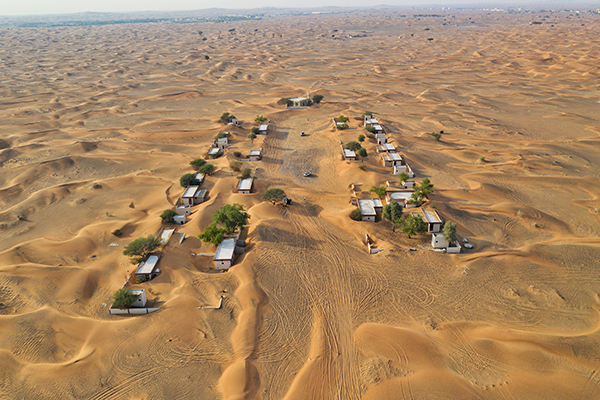Ras Al Khaimah was once a thriving pearl fishing village, but now it is a ghost town. The bronze, rusty-colored coating on Al Jazirat Al Hamra is a reminder of its former glory. The Arabic name for the village, "Red Island," comes from the reddish sand on which it was built.
The UAE is a country with a rich culture and history. However, oil wealth has led to rapid urbanization, which has caused many traditional buildings and marketplaces to be abandoned. These eerie remnants of the past provide a window into the UAE's traditions and way of life before modernization took over.
If you're looking to get a sense of just how quickly life can change, a visit to the ghost village of Al Jazirat Al Hamra is a perfect example. While the exact reasons for its demise are still up for debate – whether it was due to tribal conflicts with the Ruler of Ras Al Khaimah or simply because the luxury and opportunity in Abu Dhabi was too enticing – what is certain is that this village provides a fascinating glimpse into a bygone era.
The island was once a thriving hub for the Zaab tribe, who used its bountiful resources to become a renowned pearling trade center. By 1831, the Zaab had built a thriving community of over 4,000 inhabitants and dozens of fishing and trading ships. However, their good fortune did not last; in the early 20th century, the Zaab were forced to abandon their island home.
The abandoned town of Al Jazirat Al Hamra is a stark reminder of a bygone era. Once a thriving community, the town is now nothing more than a filled-in patch of land. While other parts of the Gulf have been repurposed and new cities have sprung up, Al Jazirat Al Hamra remains untouched.
Looking out over the vast and empty desert, it's hard to believe that this place is steeped in legend and mystery. But they say that if you listen closely, you can still hear the echoes of the past. We left just as the sun was setting, eager to avoid any spooky encounters in its sandy pockets and passageways.
